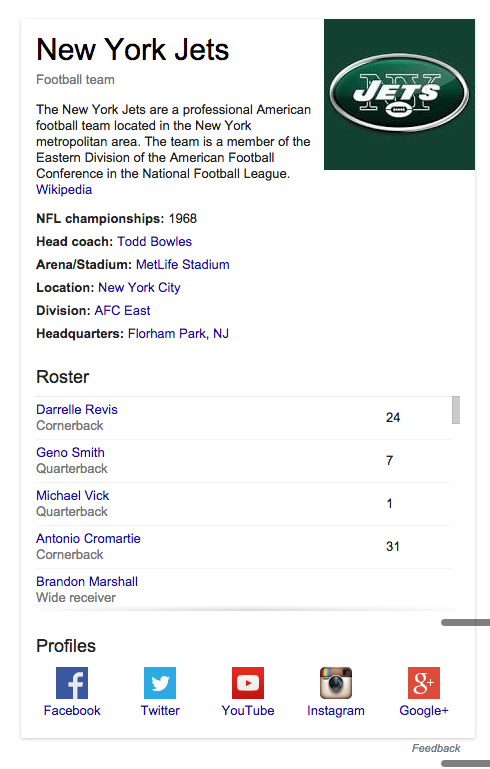One of the biggest changes that has come from Google search in the last few years (besides the Panda/Penguin/Pigeon algorithm updates) has been the introduction of a more graphic and visual search results page. If you’re like me, you’ve noticed more and more changes with how Google displays search results, such as the Knowledge Graph and displaying rich snippets.
As more and more brands are becoming aware of the importance of SEO and their digital presence, the competition continues to grow. We’re always searching for new ways to stand out in search, especially as Google varies how they display search results for a given keyword.
The good news is that there is a way to stand out amongst the crowd in search and help improve your SEO and digital profile: structured data.
What is Structured Data?
Structured data, according to Google, is a universally recognized vocabulary for interpreting content so that machines can understand it. Google and other search engines (like Bing/Yahoo) support the schema.org vocabulary for structured data. Essentially, search engines want a universal method for reading data from a given site. When businesses and websites use structured data, it gives search engines an easier (and better) way of indexing your content.
The benefits of using structured data, as noted by Google in the article above, include more prominently displayed search results for your website and listings in newer places like voice answers, Google Maps, and Google Now.
One of the bigger benefits for using structured data is the display of rich snippets, breadcrumbs, and a sitelinks search box along with your site. The biggest benefit may be importing information to Google’s Knowledge Graph. Check out the example below.
When users are searching for your brand or a related search where you may be an authority, Google can import your data as factual. Some of the data that’s included in the Knowledge Graph includes corporate logos, business hours, links to your social media, phone numbers, about us information, and more.
Structured Data Benefits for Your Business
Simply put, using structured data is giving Google and other search engines an easier way to find and index the important content on your site, which in turn will give you more prominence in search listings. Furthermore, using structured data will give users more information for your business’s or brand’s Knowledge Graph, providing users more useful information like a direct phone number (if using a phone), correct business hours, your address, and other pertinent business information.
Essentially, the more structured data on your site, the more Google can display for you and your brand — which is a good thing! Implementing structured data can be handled by whomever handles your web development and website. For more information on the type information you can implement through structured data, or more information about the system, visit schema.org or contact the experts at PCG!
